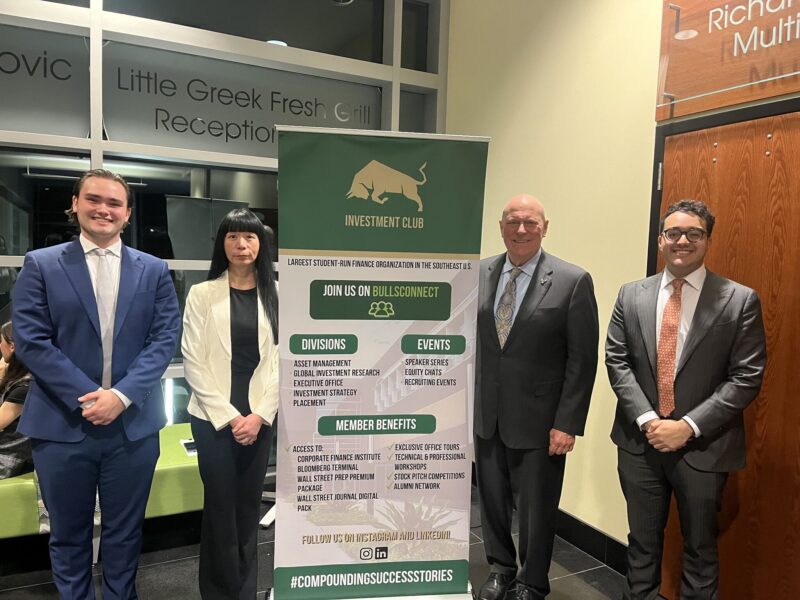Last year, Dylan Canady approached the Bayboro Garden to prepare for a meeting and found the area had been fenced off for the construction of the Kate Tiedemann College of Business.
With the area off limits, no one could access or care for the 19-raised-bed garden and without proper notice, nothing could be transplanted.
“All of our plants withered and died,” said Canady a senior and Garden Club secretary.
The Bayboro Garden was a project started in 2010 behind the Piano Man building and maintained by students in the Garden Club.

Using a technique called permaculture, plants in the Bayboro Food Forest will interact, with some providing necessary shade and others repelling predatory insects.
They harvested a variety of food such as tomatoes, kale, peppers and herbs. A harvest of green beans was used to help a local church event, dill was added to the Tavern’s salmon dip and other produce was used for a few campus events.
Since the garden was demolished, the club’s new project is underway – the Bayboro Food Forest – in collaboration with the Student Environment Awareness Society and the Student Government Department of Sustainable Initiatives.
The forest is expected to produce more food than the traditional garden and will include trees, a pond and a gazebo.
Unlike the Bayboro Garden, which harvested different plants depending on the season, Canady said the food forest’s crops will not be removed or replanted, but will remain indefinitely – a technique known as permaculture.
“Literally permanent agriculture,” he said.

The Food Forest project started after the Bayboro Garden was demolished in preparation for the construction of the Kate Tiedemann College of Business. The forest is being developed behind Residence Hall One.
According to Canady, permaculture allows plants and even animals to interact and have an effect on the ecosystem. He said some plants give others necessary shade, others attract pollinators and some may repel predatory insects. As seasons change, certain plants may lay dormant while others will thrive.
The food forest is being developed behind Residence Hall One on a raised section of land where tree roots and a potential pond will not interfere with buried pipes or lines.
SEAS and the Garden Club want the forest to be used as a “living” classroom to allow students to get hands-on education about sustainability and the environment.
However, much of the project is still in the works as students gather quotes for landscape work and supplies.
“A big portion will be done by the end of the semester,” said Alana Todd, secretary for the department of sustainable initiatives.
Want to be involved in the Bayboro Food Forest? Garden Club meetings are held every Monday at 3 p.m. in the Coral Room at the University Student Center.


